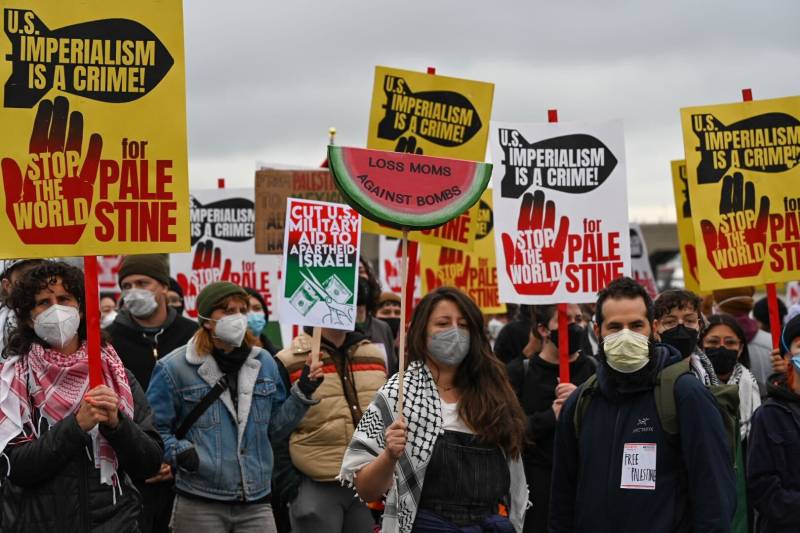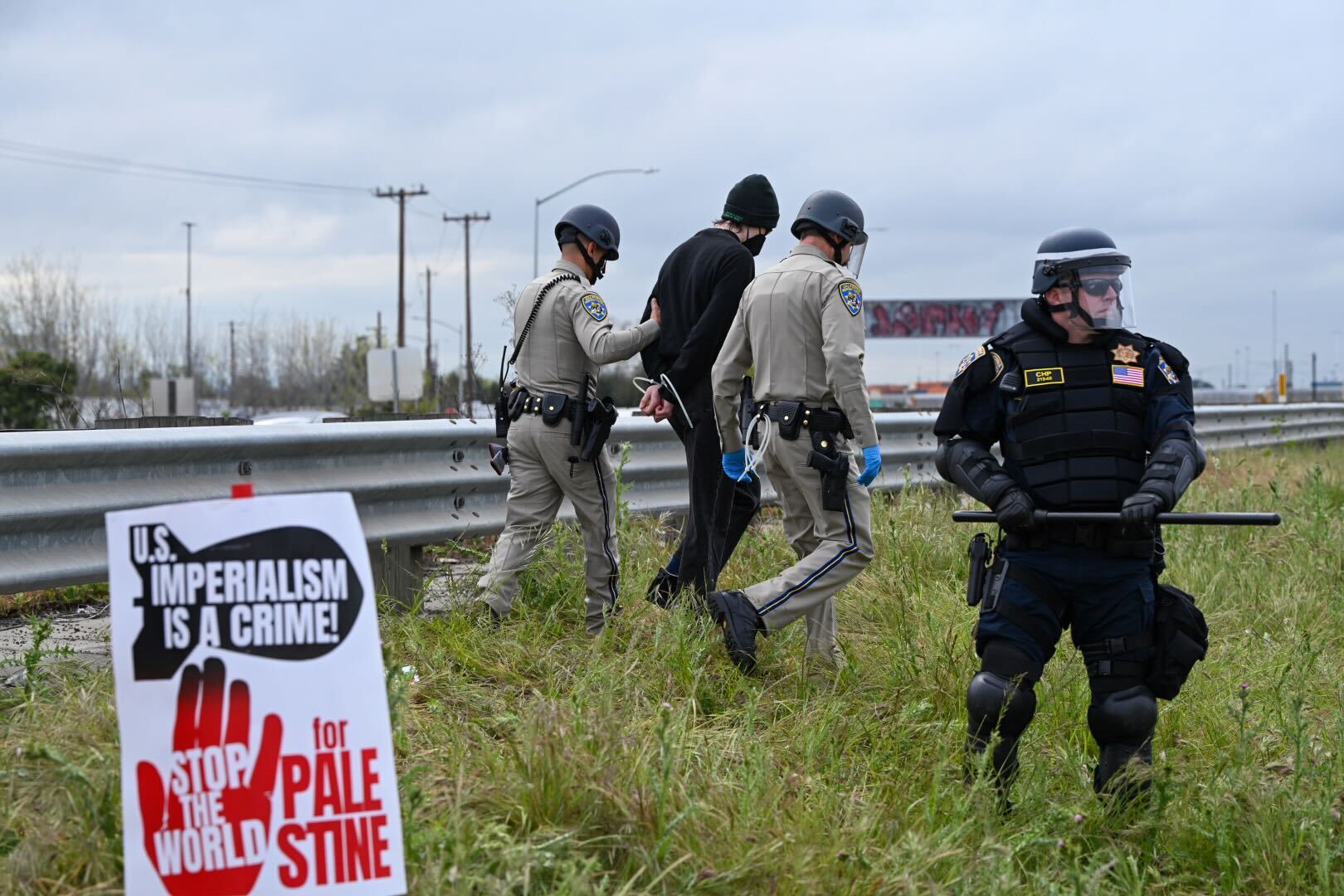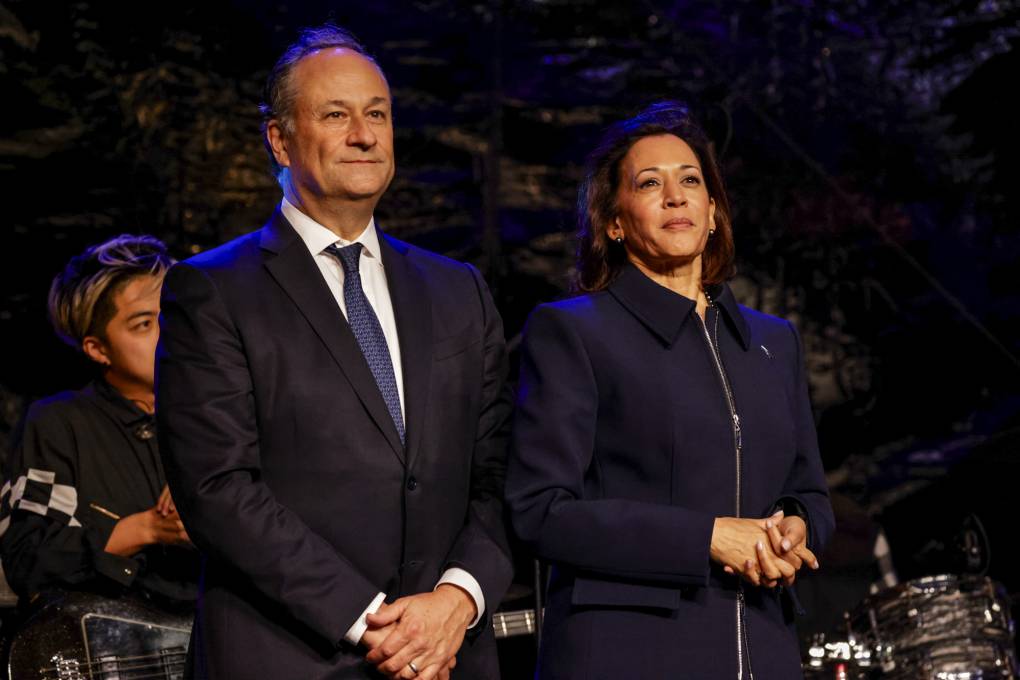All 26 people who are charged in connection with a pro-Palestinian protest that blocked the Golden Gate Bridge in April have turned themselves in to police after the San Francisco district attorney’s office served them with arrest warrants over the weekend.
The demonstrators each face 38 counts of false imprisonment, trespassing to interfere with a business, refusal to disperse a riot and other charges. Eight of them are also accused of felony conspiracy, while the remaining 18 each face a count of misdemeanor conspiracy. Lawyers for the protesters called the charges politically motivated and said they plan to plead not guilty.
On Monday morning, more than 100 people rallied outside a county jail in support of the activists known as the Golden Gate 26, demanding that the charges be dropped.
“We believe that these charges are politically motivated, [and] are being leveled unfairly against these protesters, who were only engaged in civil disobedience and peaceful protest in opposition to U.S. support for Israel’s genocide unfolding against Palestinians in Gaza,” Wassim Hage, a community organizer for the Arab Resource and Organizing Center, told KQED at the event.



